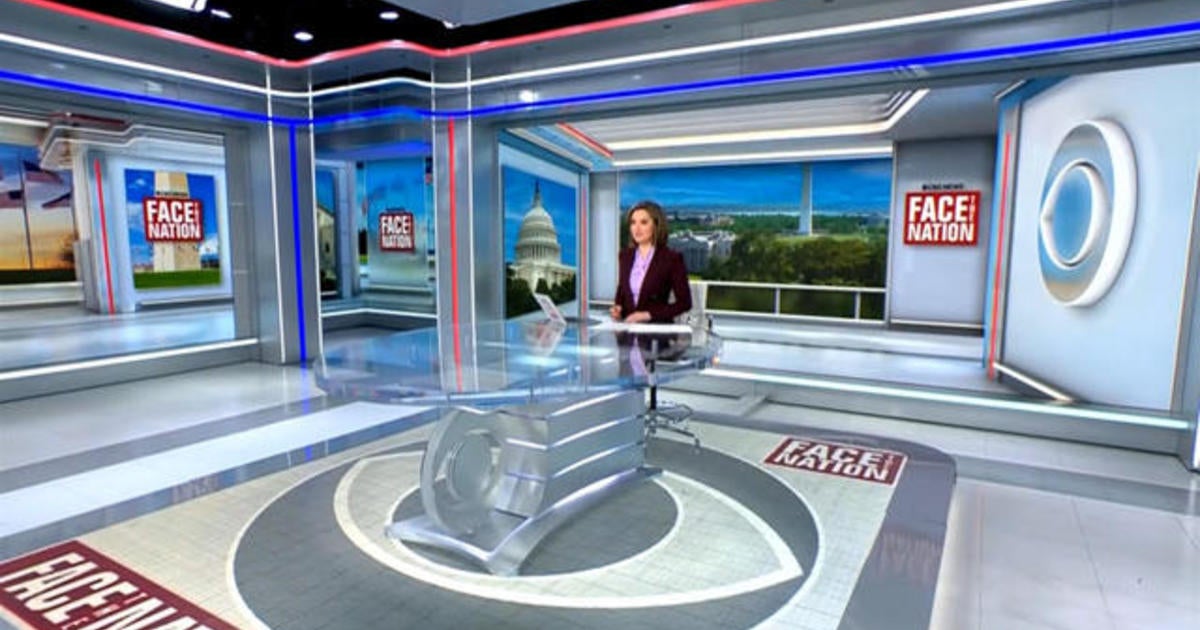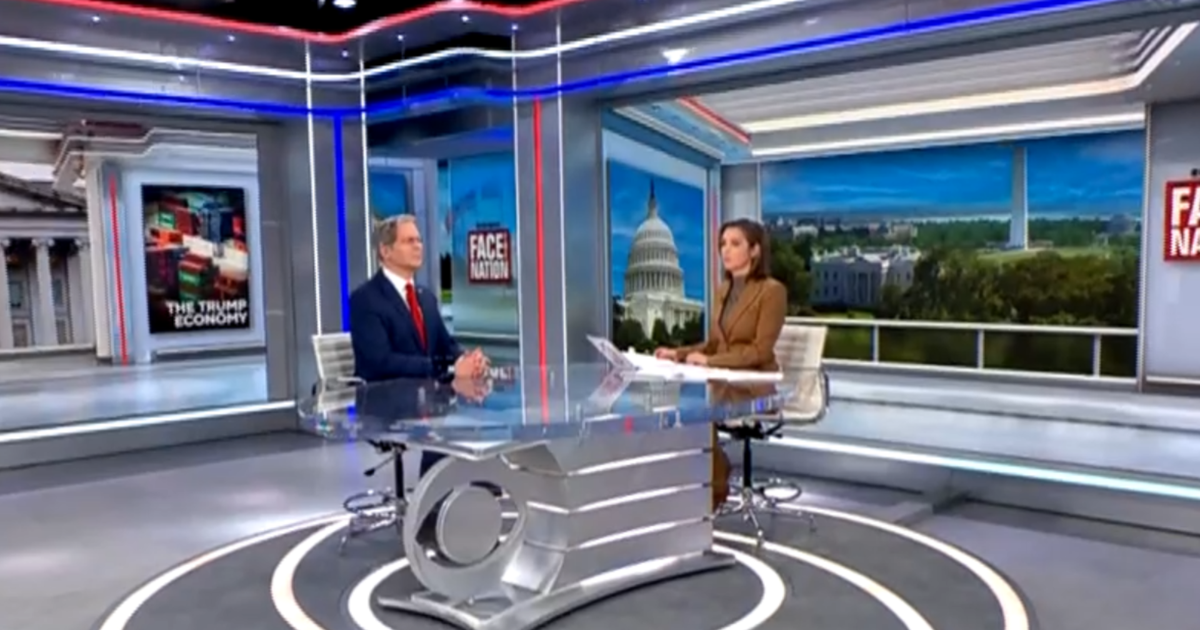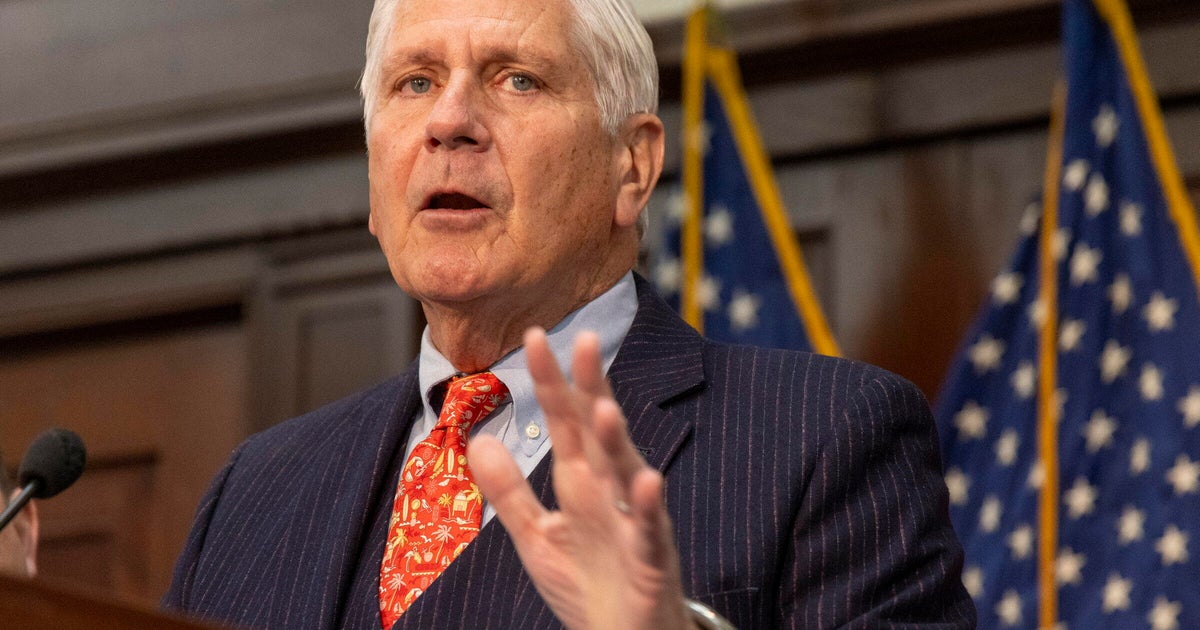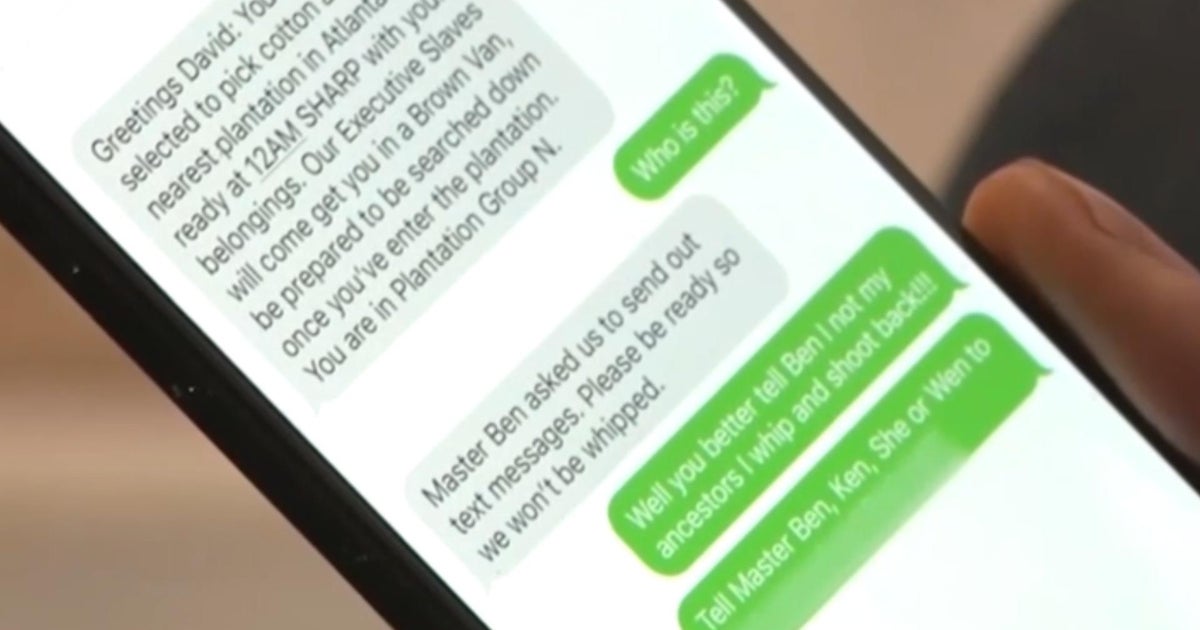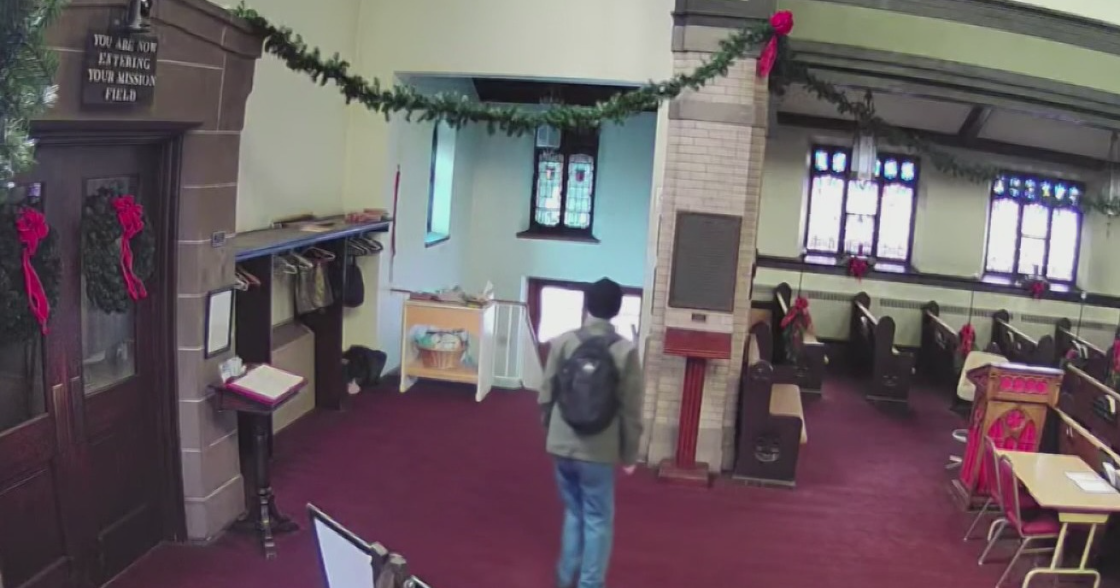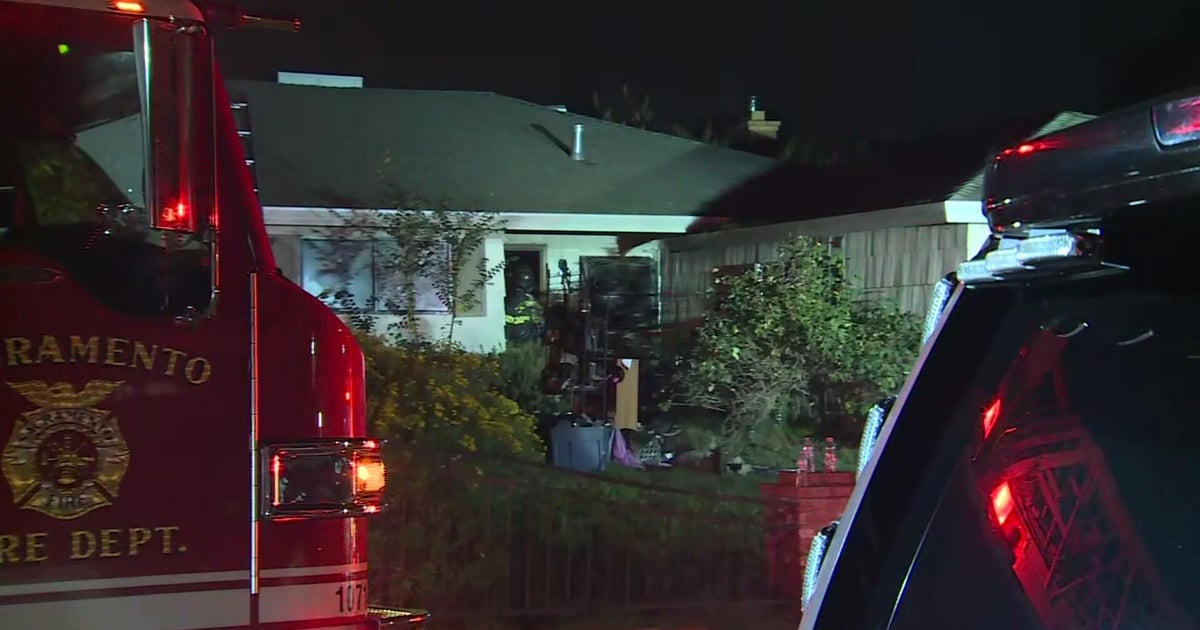Transcript: Governor Asa Hutchinson on "Face the Nation," January 3, 2021
The following is a transcript of an interview with Arkansas Governor Asa Hutchinson that aired Sunday, January 3, 2021, on "Face the Nation."
MARGARET BRENNAN: Welcome back to FACE THE NATION. We want to go now to Governor Asa Hutchinson of Arkansas, who is also the vice chair of the Nationals Gov- National Governors Association. He joins us from Little Rock. Good morning to you, Governor.
GOVERNOR ASA HUTCHINSON: Good morning, MARGARET. Good to be with you.
MARGARET BRENNAN: I'm glad we have you today to talk about the vaccine and distribution. I want to quickly ask you something though on the political front as a Republican. Nearly a quarter of Senate Republicans say they have concerns about voter integrity, and plan on Wednesday to challenge Joe Biden's Electoral College win. This is, to be very clear, all but certain to fail in terms of changing the outcome of the election. But other Republican senators say this is destructive to do in the first place. Where do you stand?
GOV. HUTCHINSON: Well, it's a- a process that they have the right to initiate. I think it's a little bit of a Don Quixote jousting at windmills efforts. I think it is designed- certainly it will fail. Joe Biden is our president-elect and he will be confirmed in that capacity. I do think that from a state perspective, the challenges have been initiated through recounts and court challenges. And that's how we work in our Electoral College, state by state. And so when it gets to Congress, it's really a limited opportunity to review the intricacies of the election process. We should have confidence in what has been done and the reviews and the recounts. And let's all recognize that while the system is not perfect, it worked state by state, and we should accept those results and move on to do some good things for our country.
MARGARET BRENNAN: So I understand you do not support that effort. Thank you for your clarification there Governor. I want to move on to the virus. The CDC says Arkansas has only distributed a third of the vaccines that you have been given. What's the biggest challenge getting the doses into arms?
GOV. HUTCHINSON: Well, there are a number of challenges and we've got to do better both at the federal and at the state level. One of the challenges is that we have a limited supply. And when you have a limited supply, that means you've got to prioritize and you've got to make sure you're giving it to those with the greatest needs, or those of the greatest risk. And that's a challenge in and of itself. Secondly, you do have some reluctance and that creates some complications. We're focusing on our long-term care facilities and that has to have consents in many instances and that slows up the process. But even with that, we have to do better. We have to act with a sense of urgency and we can do that. We have to learn whenever you're in a battle that you have to adjust to the circumstances of that battle.
MARGARET BRENNAN: Right
GOV. HUTCHINSON: And right now, we're going to have to make some adjustments in the plan to get these vaccines out.
MARGARET BRENNAN: You heard the head of Operation Warp Speed say that they were working under the assumption that there is a plan in place to immunize at the state level. Was there not a plan in Arkansas? I mean, that seems to be the implication here, that it is the governors who are dropping the ball.
GOV. HUTCHINSON: No, there has- there is a plan and that plan has been coordinated at the federal level, but let me lay it out for you. In phase one, we're supposed to be doing our health care workers and we're doing our long-term care facilities, residents and staff. The federal government allocates that based upon where we want it to go, but they're working through the pharmacies and they made a contract with Walgreens and with CVS, two major chain pharmacies. But the states can- or the local long-term care facilities can opt out. 60% of ours opted out for independent pharmacies. They're doing a better job of getting it out than the chain pharmacies. They are acting with more urgency. And so that's an example of where I've learned that whenever you look now at the challenges with a specific population, what is it going to be like when we move to essential workers and whenever we move--
MARGARET BRENNAN: Yeah.
GOV. HUTCHINSON: --to the general population, we're going to have to utilize more resources to get this out than we've got planned right now.
MARGARET BRENNAN: What- what have the other states told you is their difficulty? Is it all the same that you're laying out, the problems with the nursing homes?
GOV. HUTCHINSON: Yes, it is the- the challenge of the work staff, the fact that we don't have enough right now for our nurses. We have to utilize our pharmacies because they have the capability and relationships to get it out. But we're going to have to look more broadly at how to utilize more resources, whether it is utilizing medical personnel that's already strained in terms of our National Guard, whether it is bringing on pharmaceutical students that can do more in terms of giving these vaccinations out. We've got to increase the capacity of our human resources.
MARGARET BRENNAN: You have the world's largest retailer headquartered in your home state. They have a massive logistics hub. Have you asked Walmart to help you out?
GOV. HUTCHINSON: Walmart is ready to help. This is an example of where--
MARGARET BRENNAN: Would it be better if the private sector took this over?
GOV. HUTCHINSON: The private sector is very engaged. The private sector is doing it, both the independent pharmacies as well as the chain pharmacies. And so, the private sector is delivering it--
MARGARET BRENNAN: But if the federal government gave directly to them versus you?
GOV. HUTCHINSON: The federal government is giving directly to them. All we're doing as a state is telling them where it goes and allocate it.
MARGARET BRENNAN: Right.
GOV. HUTCHINSON: The delivery is directly to the private sector and they're getting it out, but not as fast as we would like. And so it's a partnership. And you're going to see these numbers increase dramatically in the next week,--
MARGARET BRENNAN: Yeah.
GOV. HUTCHINSON: --ten days. I believe by the end of January, you'll have all of 1A vaccinated and we'll be moving on to essential workers, if not sooner than that.
MARGARET BRENNAN: OK, I ask you that because the head of Operation Warp Speed again said allocation came down to what the governors asked for and where they told them to send it. So, it just continues to be--
GOV. HUTCHINSON: That's correct.
MARGARET BRENNAN: --ping-ponged here. So on the federal guidance, though--
GOV. HUTCHINSON: Now, it's- it's saying the same thing, MARGARET, it's saying the same thing. We are allocating where it goes. They deliver it to where we say and that's to the private sector right now.
MARGARET BRENNAN: OK. The federal government right now is telling states to prioritize people 75 years old and up along with front line workers. There are state governors, Florida, Texas, who have moved the age qualification downwards, right, to hit more of their elderly population. Are you going to do that or are you going to stick with what the federal government's telling you to do?
GOV. HUTCHINSON: We're looking at reducing that to 70 as well. The argument that it should be allocated 75 and up first is because there's a limited supply. It might be easier for you to distribute it and know exactly who you're distributing it to. But the 70 and up population we're looking at, we're trying to save lives getting to the most vulnerable first. And so we're still looking at that as to whether that should be lowered. That decision will be forthcoming.
MARGARET BRENNAN: So you may endorse what Governors Abbott and DeSantis are doing?
GOV. HUTCHINSON: We're looking at that.
MARGARET BRENNAN: OK.
GOV. HUTCHINSON: It may happen. We're also looking at some other modifications to the recommendation of the CDC, which is simply recommendations to the governors.
MARGARET BRENNAN: OK, Governor Hutchinson, thank you very much and good luck to you.
GOV. HUTCHINSON: Thank you, MARGARET.
MARGARET BRENNAN: We'll be right back with former FDA commissioner Dr. Scott Gottlieb. Stay with us.
